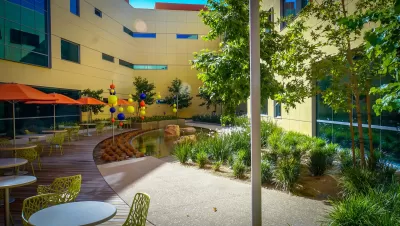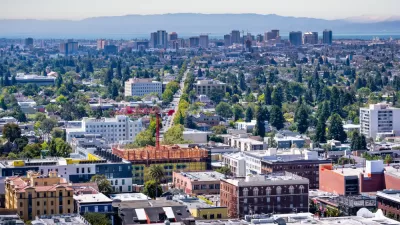Much of the focus on decreasing carbon emissions is on the electrical grid and vehicles. But, buildings are a huge contributor, and California is leading the way in making electrification a priority.

David Roberts writes about California’s Building Decarbonization Coalition and its report on the challenges in shifting buildings from fossil fuels to electricity. With 40 percent of global and U.S. greenhouse gas emissions coming from buildings, a push for decarbonization is essential, says Roberts.
The report says that new buildings should be designed so they do not rely on fossil fuels and that the state should adopt zero-emissions building codes for both residential and commercial buildings. The real hurdles, however, lie with the large number of existing buildings, particularly in convincing building owners, contractors, and policymakers about the merits of electrification.
The report also argues that electrification technology needs to be available on a larger scale to bring down costs. In addition, standards and policies should better support building decarbonization, and coordination among stakeholders is important. "The problem is that decision makers in the building sector are highly distributed. Owners, contractors, utilities, regulators, local officials, and state legislators all have some say in how buildings are built and run," notes Roberts.
FULL STORY: A California coalition is tackling one of the hardest, unsexiest parts of climate policy

Alabama: Trump Terminates Settlements for Black Communities Harmed By Raw Sewage
Trump deemed the landmark civil rights agreement “illegal DEI and environmental justice policy.”

Study: Maui’s Plan to Convert Vacation Rentals to Long-Term Housing Could Cause Nearly $1 Billion Economic Loss
The plan would reduce visitor accommodation by 25% resulting in 1,900 jobs lost.

Planetizen Federal Action Tracker
A weekly monitor of how Trump’s orders and actions are impacting planners and planning in America.

Waymo Gets Permission to Map SF’s Market Street
If allowed to operate on the traffic-restricted street, Waymo’s autonomous taxis would have a leg up over ride-hailing competitors — and counter the city’s efforts to grow bike and pedestrian on the thoroughfare.

Parklet Symposium Highlights the Success of Shared Spaces
Parklets got a boost during the Covid-19 pandemic, when the concept was translated to outdoor dining programs that offered restaurants a lifeline during the shutdown.

Federal Homelessness Agency Places Entire Staff on Leave
The U.S. Interagency Council on Homelessness is the only federal agency dedicated to preventing and ending homelessness.
Urban Design for Planners 1: Software Tools
This six-course series explores essential urban design concepts using open source software and equips planners with the tools they need to participate fully in the urban design process.
Planning for Universal Design
Learn the tools for implementing Universal Design in planning regulations.
Caltrans
Smith Gee Studio
Institute for Housing and Urban Development Studies (IHS)
City of Grandview
Harvard GSD Executive Education
Toledo-Lucas County Plan Commissions
Salt Lake City
NYU Wagner Graduate School of Public Service





























